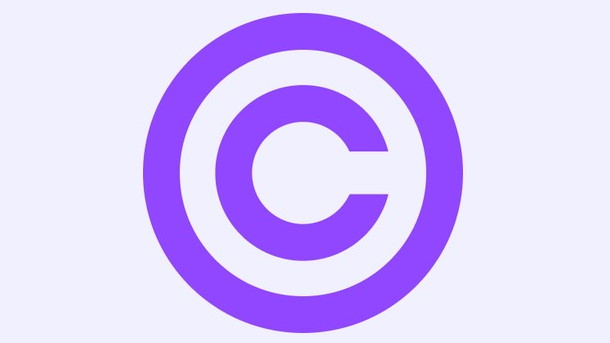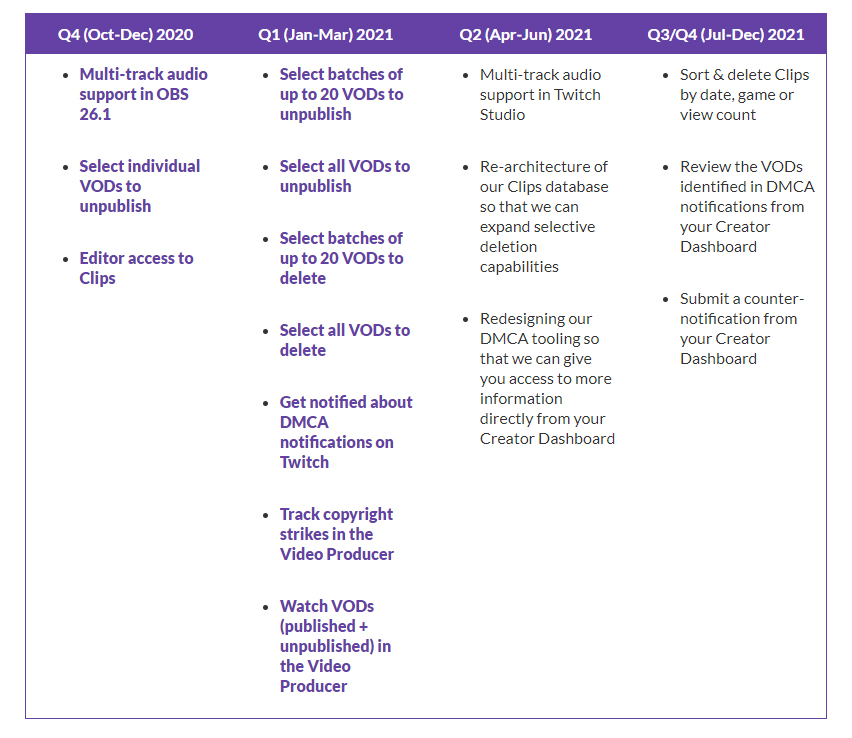Twitch is making it easier for streamers to deal with copyright claims
It's now possible to mass-unpublish VODs, and more features are coming to help make DMCA notices manageable.

In 2020, the Sauron-like eye of the music industry turned its gaze upon Twitch and fired a beam of DMCA takedown notices at its users, hitting thousands of archived streams that contained copyrighted music. Twitch was caught off guard, and wasn't able to offer good ways for streamers to review rights claims, manage old clips, or issue counter-claims. The result was a wave of vague warning emails, mass VOD removals, and panic among streamers.
Twitch apologized for the mess and said it would introduce new tools for streamers to make it easier for them to manage their old streams and avoid copyright issues. Some of those tools have arrived today. Here's what Twitch just added:
- On top of being delivered by email, DMCA notices now appear in the My Channel inbox on Twitch.
- The Video Producer page now includes a tally of a channel's copyright strikes.
- VODs can now be deleted or unpublished in batches as large as 20.
- A channel's entire VOD library can now be deleted or unpublished in one click.
- VODs can now be viewed on the Video Producer page, even if they're unpublished.
Twitch plans to introduce more copyright-related features throughout the year, and has posted a roadmap and FAQ about DMCA claims. Upcoming features include multi-track audio support in Twitch Studio, a way to review flagged VODs from within the Creator Dashboard, a method for sorting and deleting Clips by game, date, or view count, and the ability to submit counter-notifications from the Dashboard. (Currently, counter-notifications must be sent to Twitch in an email that conforms to a set of legal guidelines.)

The full feature set will be complete by the end of the year barring any delay, and looks like a major improvement over what was available to Twitch streamers last year, when many had to manually scour ancient VODs for infringement or delete all of them.
What Twitch can't do, sadly, is anything about the Digital Millennium Copyright Act itself. Like other online platforms—copyright enforcement has also been a big problem for YouTube—Twitch must react when someone invokes the DMCA to claim that their copyright has been infringed upon. If the notice is erroneous or fraudulent, users can submit counter-notifications, but Twitch ultimately doesn't have the authority to say who's right—that's an issue for US courts.
Aside from the feature roadmap, Twitch's DMCA information page also includes an FAQ that explains these facets of US copyright law to users (Twitch complies with similar laws in other regions, but DMCA is the one everyone references, as it's what the biggest music and film companies invoke). The new and upcoming tools were sorely needed, but in the end, 'don't play music you aren't allowed to' is the best advice for streamers who want to avoid having VODs deleted or having their Twitch accounts banned for repeat violations. (Even then, music in games or trailers can cause problems, so it's hard to be entirely insulated from DMCA shenanigans. The truth is that the very games people stream are subject to these laws, too—the only difference is that game publishers usually don't submit DMCA notices over gameplay footage, a fact that makes Twitch's existence possible.)
As one solution to the music problem, Twitch also offers Soundtrack, a service which provides rights-cleared music for streamers to use as background tracks. That's what almost all of these copyright strikes are about: It's fairly common practice for streamers to put on a Spotify playlist or something like it while chatting with viewers, and last year, Twitch said that over 99 percent of DMCA notices had to do with that kind of behavior.
The biggest gaming news, reviews and hardware deals
Keep up to date with the most important stories and the best deals, as picked by the PC Gamer team.

Tyler grew up in Silicon Valley during the '80s and '90s, playing games like Zork and Arkanoid on early PCs. He was later captivated by Myst, SimCity, Civilization, Command & Conquer, all the shooters they call "boomer shooters" now, and PS1 classic Bushido Blade (that's right: he had Bleem!). Tyler joined PC Gamer in 2011, and today he's focused on the site's news coverage. His hobbies include amateur boxing and adding to his 1,200-plus hours in Rocket League.

